We Ranked EVERY Steven Spielberg Movie From Worst to Best
In the pantheon of cinematic greats, few directors command as much respect and admiration as Steven Spielberg. A visionary storyteller, Spielberg has shaped the landscape of modern cinema with a career spanning over five decades, touching hearts and igniting imaginations across generations. From thrilling adventures to poignant dramas, his filmography is a tapestry of narrative richness and technical innovation. As we embark on a journey through Spielberg’s illustrious career, we delve into the challenging task of ranking his films.
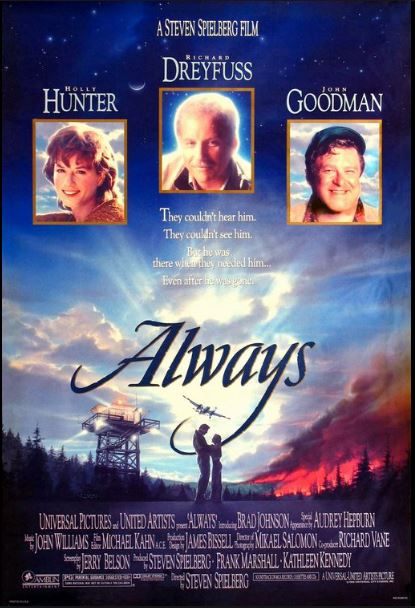
#29. “Always” (1989)
- “Always” is often viewed as one of Spielberg’s lesser works due to its relatively mundane storyline and lackluster emotional impact compared to his other films. The movie, a romantic fantasy about a deceased pilot’s spirit, lacks the narrative strength and character development typical in Spielberg’s more acclaimed works. Despite its impressive aerial sequences, the film fails to resonate as deeply as his other, more impactful stories.

#28. “1941” (1979)
- “1941” is a comedic take on the hysteria in Los Angeles after the attack on Pearl Harbor. Despite featuring a star-studded cast and impressive set pieces, the film is often criticized for its disjointed plot and over-the-top humor, which doesn’t consistently land. Spielberg himself has acknowledged its shortcomings, making it a lesser entry in his filmography due to its tonal inconsistency and lack of narrative focus.
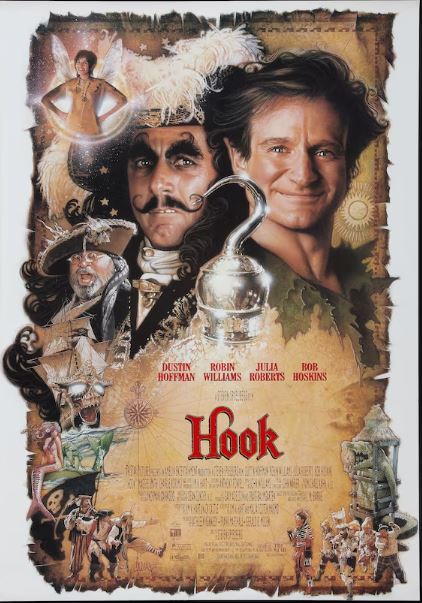
#27. “Hook” (1991)
- “Hook” reimagines the Peter Pan story with a grown-up Peter returning to Neverland. Although it features memorable performances, especially by Robin Williams and Dustin Hoffman, the film is often criticized for its excessive sentimentality and lack of narrative tightness. Despite its imaginative concept, “Hook” struggles to balance its whimsical elements with a coherent story, placing it lower on Spielberg’s ranking.

#26. “The Terminal” (2004)
- “The Terminal,” while showcasing Tom Hanks’ strong performance, is often viewed as a lesser Spielberg film due to its relatively light narrative. The film, about a man stranded in an airport terminal, is charming but lacks the depth and dramatic heft of Spielberg’s more acclaimed works. Its feel-good nature and simplistic storyline place it lower on the list, despite its heartwarming qualities.
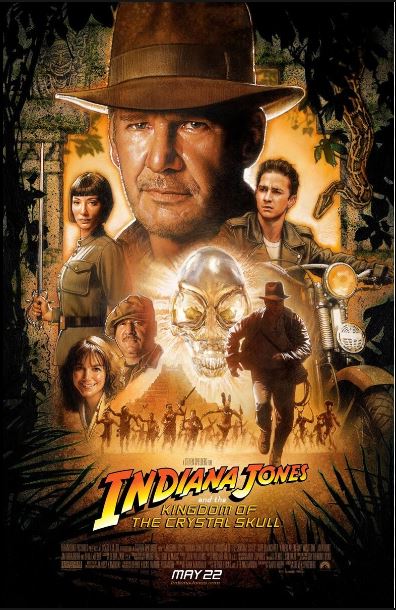
#25. “Indiana Jones and the Kingdom of the Crystal Skull” (2008)
- The fourth installment in the Indiana Jones series, this film received mixed reviews, primarily due to its far-fetched plot and heavy reliance on CGI. While it retains the adventurous spirit of the series, many fans and critics felt it didn’t live up to the charm and excitement of the earlier films. It’s often criticized for its infamous “nuking the fridge” scene, which became a symbol of the film’s perceived implausibility.
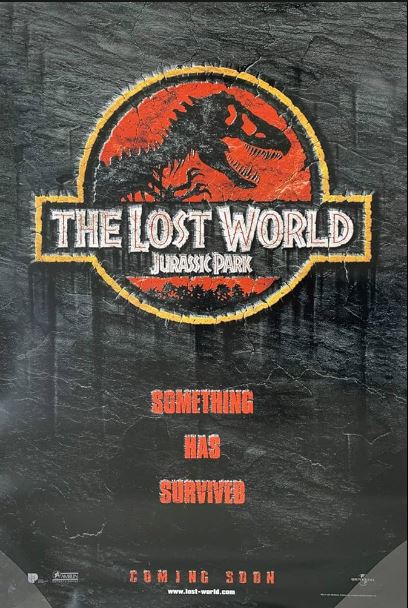
#24. “The Lost World: Jurassic Park” (1997)
- As a sequel to the groundbreaking “Jurassic Park,” “The Lost World” faced high expectations but is often considered inferior to its predecessor. The film delivers on the spectacle of dinosaur action but is seen as lacking in the strong character development and narrative tension that made the first film a classic. Its focus on action and special effects over story places it lower in Spielberg’s oeuvre.

#23. “War of the Worlds” (2005)
- This adaptation of H.G. Wells’ classic novel delivers impressive special effects and intense action sequences. However, it is often criticized for its lack of character depth and a somewhat underwhelming conclusion. Despite its technical prowess, the film doesn’t quite reach the emotional or narrative heights of Spielberg’s best work.
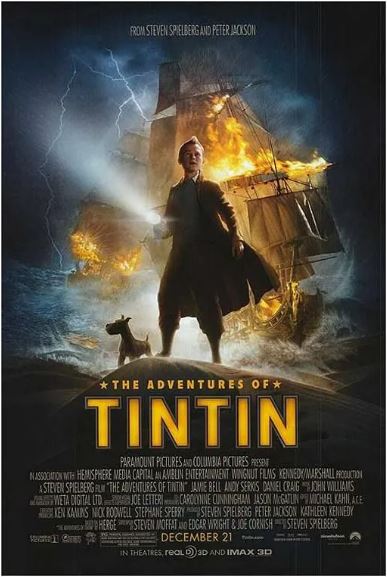
#22. “The Adventures of Tintin” (2011)
- Spielberg’s foray into animation with “The Adventures of Tintin” was praised for its stunning visuals and dynamic action scenes. However, some felt that the film, while entertaining, lacked the emotional resonance of his more acclaimed live-action films. It’s a solid adventure movie but doesn’t stand out in his filmography as much as others.
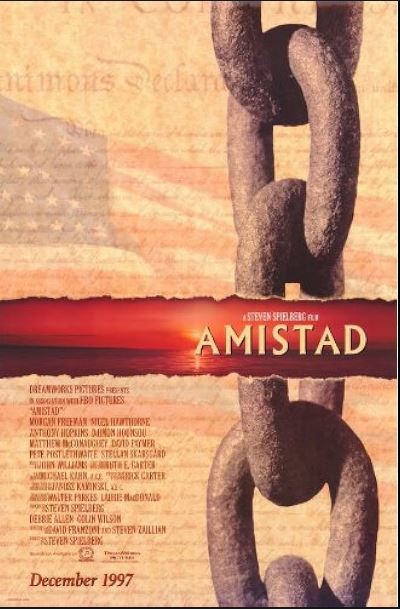
#21. “Amistad” (1997)
- “Amistad” is a powerful historical drama about a mutiny aboard a slave ship. The film is recognized for its strong performances and the impactful way it handles its subject matter. However, it’s often noted for its lengthy runtime and pacing issues, which place it slightly lower on Spielberg’s list.
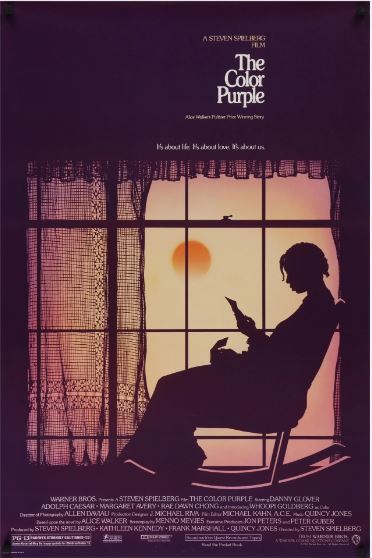
#20. “The Color Purple” (1985)
- “The Color Purple” marked a significant shift for Spielberg into more serious dramatic storytelling. The film is lauded for its powerful performances and narrative, but some critics felt Spielberg’s approach was somewhat lacking in subtlety. Despite these critiques, it remains a significant work in his career.
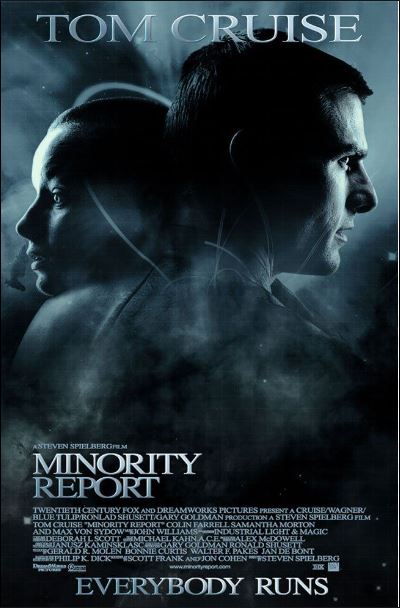
#19. “Minority Report” (2002)
- This sci-fi thriller is celebrated for its innovative visual style and thought-provoking story. However, some viewers found its plot somewhat convoluted, and its tone inconsistent. Despite these criticisms, it’s generally regarded as a strong entry in Spielberg’s filmography.
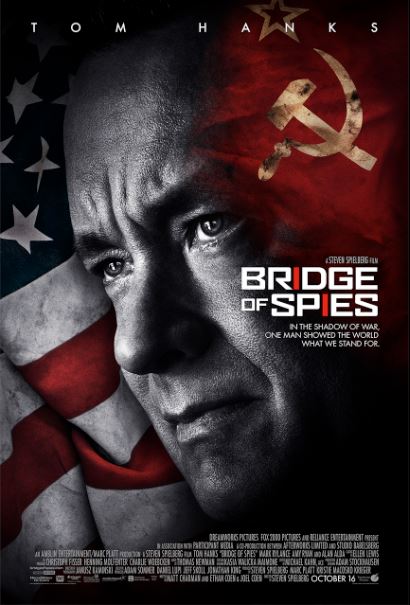
#18. “Bridge of Spies” (2015)
- “Bridge of Spies” is a well-crafted Cold War spy thriller with strong performances, particularly from Tom Hanks. While it’s a solid and competently made film, some audiences found it less engaging compared to Spielberg’s more dynamic works. It’s a more understated entry in his oeuvre.

#17. “A.I. Artificial Intelligence” (2001)
- “A.I. Artificial Intelligence” is a unique blend of Spielberg’s sentimentality and Stanley Kubrick’s darker thematic elements. The film is praised for its ambitious storytelling and visual effects but is often criticized for its tonal inconsistency and what some consider an overly sentimental ending. It remains a divisive yet thought-provoking work in his filmography.
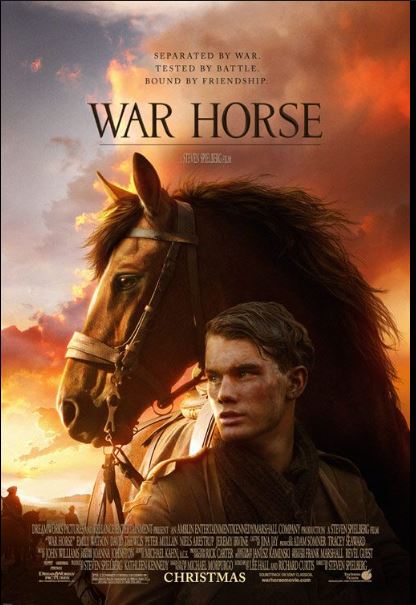
#16. “War Horse” (2011)
- “War Horse” is an epic war drama that showcases Spielberg’s skill in creating visually stunning and emotionally resonant films. While it’s praised for its cinematography and the powerful portrayal of the bond between a boy and his horse, some critics found it to be overly sentimental. The film is a solid, if not standout, entry in Spielberg’s body of work.
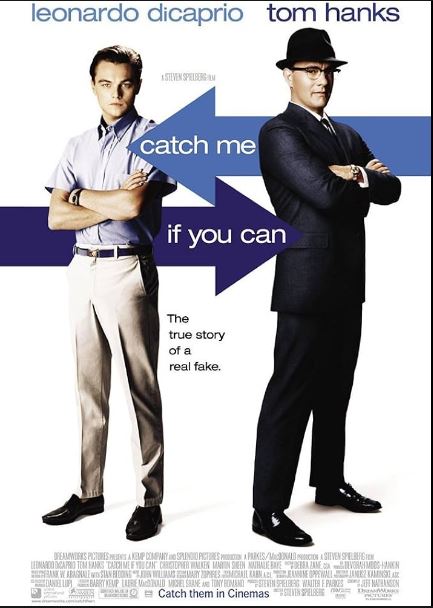
#15. “Catch Me If You Can” (2002)
- This biographical crime film is known for its engaging story, charming performances, and stylish direction. It’s a lighter Spielberg film but is highly regarded for its entertaining narrative and the chemistry between Leonardo DiCaprio and Tom Hanks. It’s often seen as a refreshing and enjoyable break from Spielberg’s more serious works.

#14. “Lincoln” (2012)
- “Lincoln” is a powerful historical drama with an exceptional performance by Daniel Day-Lewis. The film is celebrated for its detailed portrayal of political process and character study, though some viewers found its pacing slow. It stands out for its educational value and superb acting, even if it’s not as universally embraced as some of Spielberg’s other works.

#13. “Munich” (2005)
- “Munich” is a tense and morally complex film about the aftermath of the Munich massacre during the 1972 Olympics. While praised for its direction and thought-provoking content, it faced some controversy and criticism for its portrayal of historical events. The film is a stark, impactful work in Spielberg’s career, showcasing his ability to tackle challenging subjects.
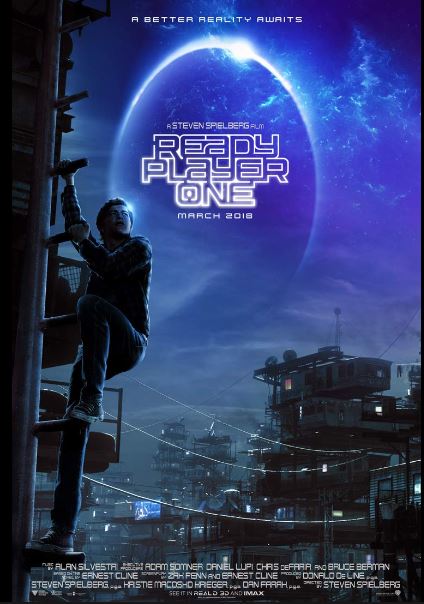
#12. “Ready Player One” (2018)
- “Ready Player One” is a visually dazzling and entertaining film that taps into nostalgia and pop culture. While it’s a fun and engaging ride, some critics felt it lacked depth in character development and relied heavily on references. It’s a testament to Spielberg’s adaptability and ability to craft visually stunning works, though not his most profound.
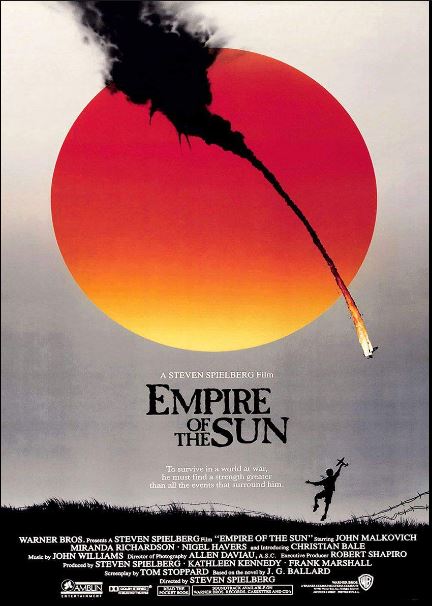
#11. “Empire of the Sun” (1987)
- “Empire of the Sun” is a visually striking and emotionally powerful film about a young boy’s struggle for survival during WWII. Praised for its epic scale and Christian Bale’s remarkable performance as a child actor, it’s sometimes criticized for its pacing. This film remains a significant but somewhat underappreciated work in Spielberg’s career.
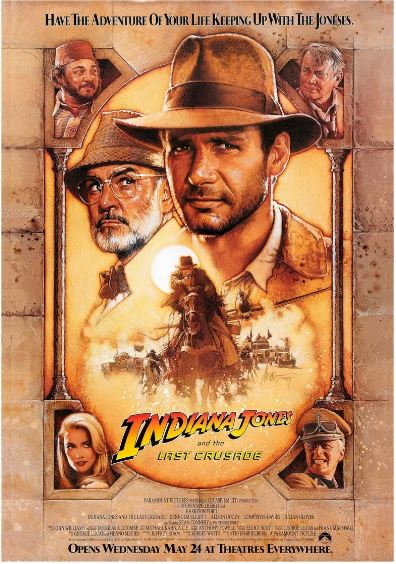
#10. “Indiana Jones and the Last Crusade” (1989)
- This third installment in the Indiana Jones series is often celebrated for its return to the roots of the franchise, with a blend of adventure, humor, and the dynamic between Harrison Ford and Sean Connery. It’s seen as a strong recovery from the less favorable “Temple of Doom” and is praised for its engaging plot and action sequences. The film balances excitement with character development, making it a high point in the series.
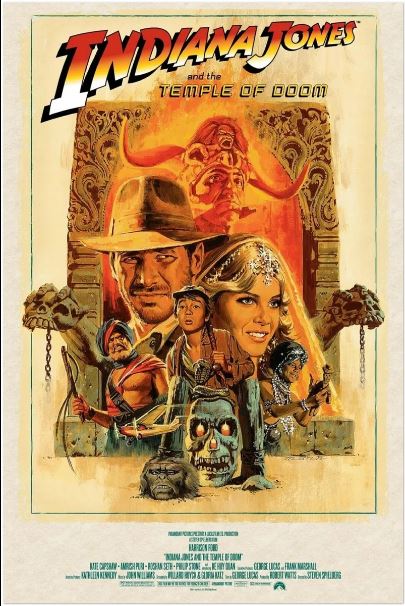
#9. “Indiana Jones and the Temple of Doom” (1984)
- The second Indiana Jones film is known for its darker tone and high-energy action sequences. While it’s an entertaining and thrilling adventure, it’s often ranked lower than other entries in the series due to its more controversial elements and less cohesive storyline. Despite this, it’s still a popular and influential film in Spielberg’s oeuvre.
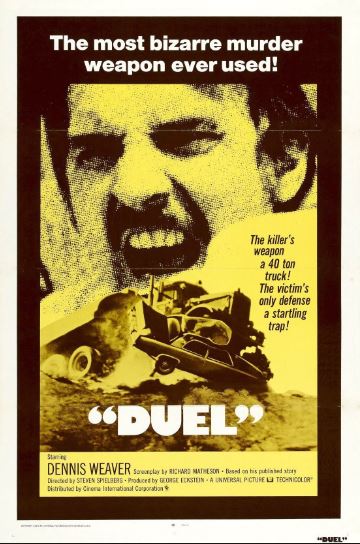
#8. “Duel” (1971)
- “Duel,” Spielberg’s feature debut, is a high-tension thriller that showcases his early talent for suspense and storytelling. The film’s simple plot about a man being chased by a mysterious truck driver is executed with skillful pacing and suspense. It’s a seminal work that hinted at Spielberg’s future as a master filmmaker.

#7. “The Post” (2017)
- “The Post” is a gripping historical drama about the publication of the Pentagon Papers. The film is praised for its timely story and strong performances, particularly from Meryl Streep and Tom Hanks. Although it’s a well-crafted film, it doesn’t quite reach the iconic status of some of Spielberg’s other works.
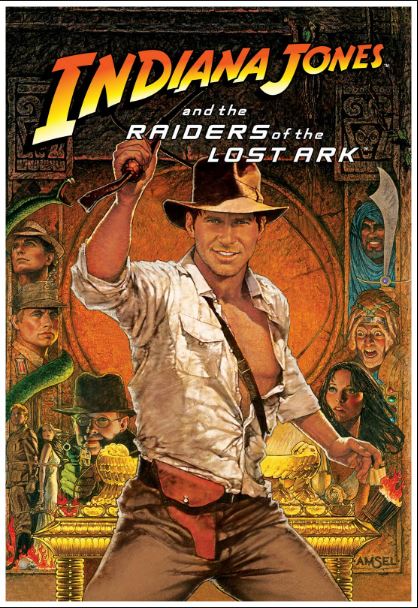
#6. “Indiana Jones and the Raiders of the Lost Ark” (1981)
- The first Indiana Jones film is widely regarded as a classic, combining adventure, action, and a charismatic performance by Harrison Ford. Its innovative storytelling and iconic scenes have made it a beloved and influential film in cinema history. The film’s blend of excitement, humor, and thrills secure its place as one of Spielberg’s most enduring works.
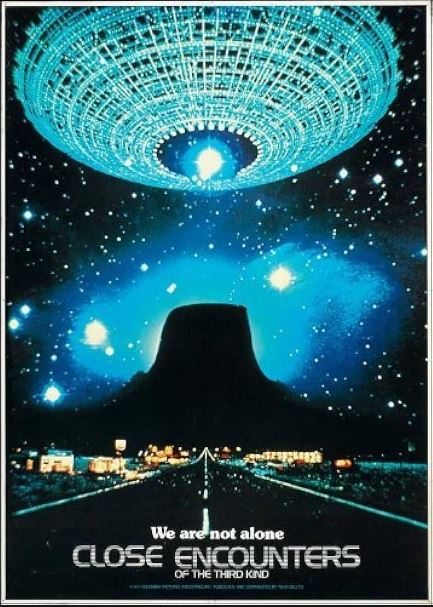
#5. “Close Encounters of the Third Kind” (1977)
- This science fiction classic is celebrated for its innovative special effects, compelling story, and emotional depth. The film’s imaginative approach to alien contact and its iconic scenes have made it a landmark in sci-fi cinema. Its blend of wonder and intrigue places it high in Spielberg’s filmography.

#4. “E.T. the Extra-Terrestrial” (1982)
- “E.T.” is a beloved classic known for its heartwarming story, memorable characters, and groundbreaking special effects. The film’s portrayal of childhood and friendship, combined with its emotional impact, have made it one of the most cherished films in Spielberg’s career. It’s a timeless film that resonates with audiences of all ages.
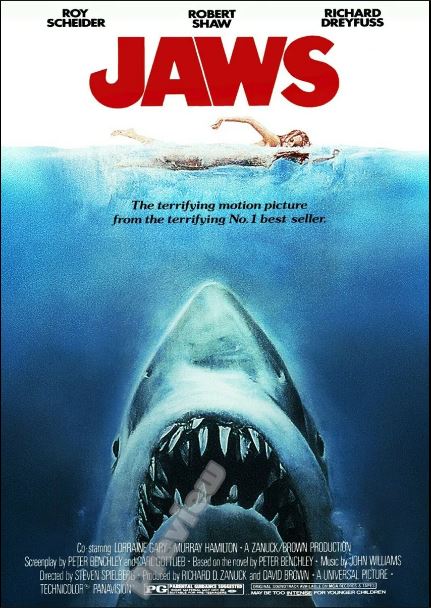
#3. “Jaws” (1975)
- “Jaws” is not only a landmark Spielberg film but also a seminal work in the thriller genre. Its suspenseful storytelling, innovative use of music, and memorable characters have made it a classic. The film’s impact on popular culture and the film industry is profound, often credited with inventing the summer blockbuster.

#2. “Schindler’s List” (1993)
- “Schindler’s List” is a profoundly moving and powerful depiction of the Holocaust. The film is praised for its historical accuracy, emotional depth, and stunning black-and-white cinematography. It’s not only considered one of Spielberg’s best works but also one of the greatest films ever made.
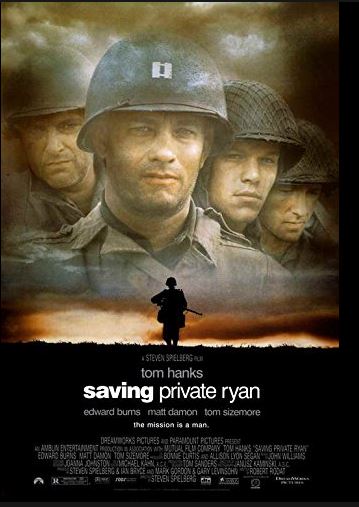
#1. “Saving Private Ryan” (1998)
- Often hailed as Spielberg’s masterpiece, “Saving Private Ryan” is renowned for its realistic depiction of WWII, particularly its harrowing opening sequence of the D-Day invasion. The film combines intense action with deep emotional storytelling. It’s widely regarded as one of the greatest war films of all time and stands as a pinnacle of Spielberg’s illustrious career.
As we conclude our cinematic odyssey through Steven Spielberg’s remarkable filmography, it’s clear that his contribution to the world of film is immeasurable. From the deep seas of “Jaws” to the battlefields of “Saving Private Ryan,” Spielberg’s work transcends mere entertainment, offering windows into diverse worlds and human experiences. His films have not only defined genres but also redefined what cinema can achieve. While our rankings are a tribute to his versatility and skill, they also remind us of the subjective nature of art.
If you liked this list, check out our ranking of every Martin Scorsese film!
